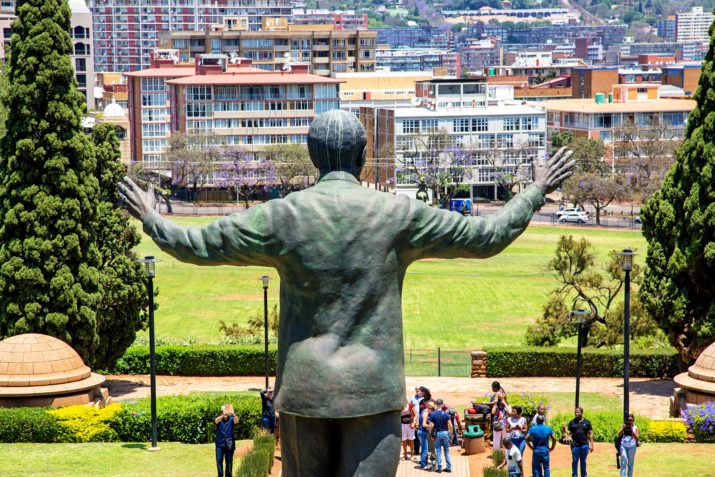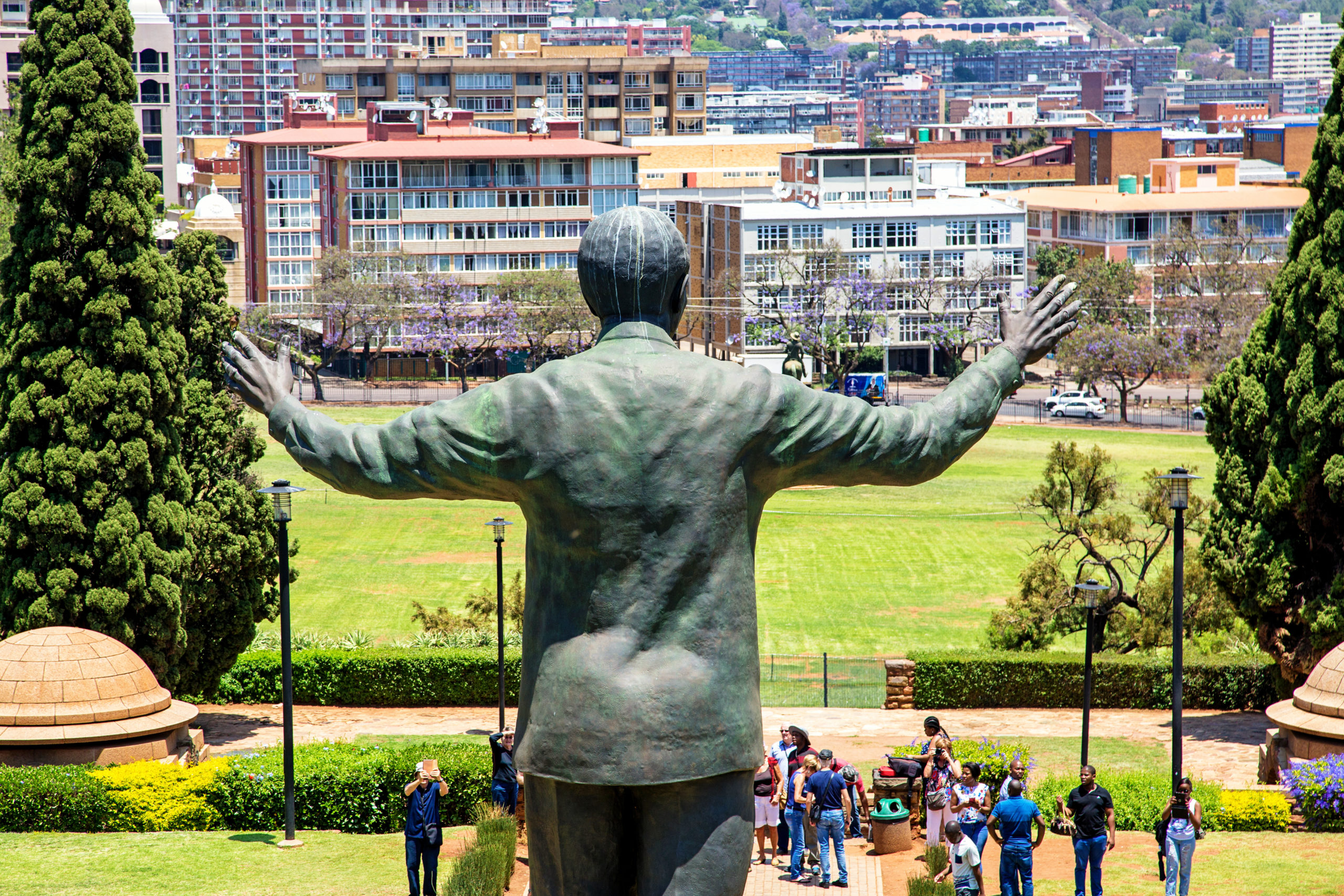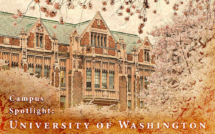

This is part of our special feature on SECUREU
This is an advanced undergraduate and graduate course on the definitions of and the relationship between ethnicity and nationhood. Competing definitions of ethnicity and rival explanations for the emergence of nationalism are critically engaged. While covering the classical works in the field of ethnicity and nationalism studies, the course readings also incorporate the most recent and cutting-edge works in the field.
The course starts out by discussing theories of ethnicity, nationalism, and the role of states in the construction of ethnic categories. It continues with a discussion of imperial systems, their collapse, and the post-imperial ethnic and religious population movements. The idea of a (Western) Christendom and Islamic Empires that preceded the age of nationalism are discussed. Apartheid South Africa and Nazi Germany are especially discussed as examples of regimes that institutionalized racist hierarchies and resorted to mass repression and violence in order to enforce them. Holocaust and the Bosnian genocide are discussed as violent manifestations of ethno-racial genocides with a latent or overt religious dimension. The role of the census in constructing ethnic and racial categories is discussed. Arab (including Algerian), Jewish (Zionist), and Pakistani nationalisms are covered. The course has a special focus on the relationship of ethnicity and nationhood in Germany, the Soviet Union, the Russian Federation, and Turkey, spending about one to two weeks on each of these countries, from the early 20th century up to the most recent and key developments of the early 21st century.
Readings
This course is based on readings, lectures, discussion, audio-visual material, quizzes, midterm and final, which together are designed to provide a full interactive learning experience. Students need to be motivated to learn about the politics of ethnicity and nationalism in order to be successful in this course. The readings come from three required books as well as online articles and sources. Those readings that are designated as “recommended” in the reading list below are “recommended” for the undergraduate section but “required” for the graduate section. The Midterm and the Final will also have both undergraduate and graduate versions, and the graduate versions will have some different questions related to the additional readings that the graduate students are required to read.
- Hutchinson, John and Anthony D. Smith (eds.). 1994. Nationalism. New York: Oxford University Press.
- Anderson, Benedict. Verso, 1983, revised in 1991, and 2006. Imagined Communities: Reflections on the Origin and Spread of Nationalism.
- Aktürk, Şener. 2012. Regimes of Ethnicity and Nationhood in Germany, Russia, and Turkey. New York: Cambridge University Press.
Assessment
- Midterm Exam – 40%
- Final Exam – 40%
- 10 handwritten QR noted (Quote-Respond-Reflect) – 10%
Students should handwrite a quote from that week’s reading (it can be as short as just one sentence) and respond, reflect, comment, criticize, etc., thus writing down very briefly what that quote inspired or provoked in their minds. It has to be handwritten on a piece of paper that cannot be more than one page only. Submitting QR notes for 10 weeks is sufficient with each QR note counting as 1 percent of the course grade.
- Class Participation – 10%
Course Outline and the Reading List
Week 1: Introduction. Defining Ethnicity: Primordial or not? Racial or Reasonable? Or how and why does it matter?
Calhoun, Craig. 1993. “Nationalism and Ethnicity.” Annual Review of Sociology 19: 211-239.
Brubaker, Rogers. 2002. “Ethnicity without Groups.” European Journal of Sociology 43, no. 2: 163-189.
Smith, Anthony D. 1999. “Ethnic election and national destiny: some religious origins of nationalist ideals.” Nations and Nationalism 5, no. 3: 331-355.
Recommended:
Hutchinson, John and Anthony D. Smith (eds.). 1996. Ethnicity. New York: Oxford University Press. pp. 35-106 (including Max Weber, Clifford Geertz, Jack Eller, Steven Grosby Pierre van den Berghe, Walker Connor, Michael Hechter, Michael Banton, Fredrik Barth)
Week 2: Defining the Nation (Part I): Conservative, Liberal, Marxist, and Constructivist Approaches
Hutchinson, John and Anthony D. Smith (eds.). 1994. Nationalism. New York: Oxford University Press. Chapter 1, “The Question of Definition”. pp 3-45
(including Ernest Renan, Joseph Stalin, Max Weber, Karl Deutsch, Clifford Geertz, Anthony Giddens, and Walker Connor)
Hutchinson, John and Anthony D. Smith (eds.). 1994. Nationalism. New York: Oxford University Press. Chapter 2, “Theories of Nationalism.” pp.47-89.
(including Elie Kedourie, Ernest Gellner, Tom Nairn, Eric Hobsbawm, Paul Brass)
Recommended:
Suny, Ronald Grigor. 2001. “Constructing primordialism: Old histories for new nations.” The Journal of Modern History 73, no. 4: 862-896.
Week 3: Theories of Nationalism (Part II): Imagined Communities, Secular Religions, Patriotism and/or Racism? Census, Map, and the Museum
Anderson, Benedict. Verso, 1983, revised in 1991, and 2006. Imagined Communities: Reflections on the Origin and Spread of Nationalism. pp. 1-236.
Hutchinson, John and Anthony D. Smith (eds.). 1994. Nationalism. New York: Oxford University Press. Chapter 2, “Theories of Nationalism.” pp. 89-121 (including Benedict Anderson, Pierre van den Berghe, John Breuilly, and Anthony Smith)
Week 4: After Empire and Religion: Nationalism as the Modern or Civil Religion?
Hutchinson, John and Anthony D. Smith (eds.). 1994. Nationalism. New York: Oxford University Press. Chapter 3, “Rise of Nations.” pp. 132-159. (including Hugh Seton-Watson, Susan Reynolds, John Armstrong, Anthony Smith, and Walker Connor)
Brubaker, Rogers. 2012. “Religion and nationalism: four approaches.” Nations and nationalism 18, no.1: 2-20.
Aktürk, Şener. 2022. “Nationalism and Religion in Comparative Perspective: A New Typology of National-Religious Configurations.” Nationalities Papers 50, no.2: 205-218.
Mavrogordatos, George. 2003. “Orthodoxy and nationalism in the Greek case.” Western European Politics 26, no.1: 117-136.
Recommended:
Santiago, Jose. 2009. “From “civil religion” to nationalism as the religion of modern times: Rethinking a complex relationship.” Journal for the Scientific Study of Religion 48, no. 2: 394-401.
Spohn, Wilfried. 2003. “Multiple Modernity, Nationalism, and Religion: A Global Perspective.” Current Sociology 51, no. 3/4: 265-286.
Week 5: Classification and Its Consequences for Identity Formation
Marx, Anthony W. 1996. “Race-making and the nation-state.” World Politics 48, no. 02: 180-208.
Aktürk, Şener. 2012. Regimes of Ethnicity and Nationhood in Germany, Russia, and Turkey. New York: Cambridge University Press. Chapter 1: 3-44.
Singh, Prerna and Matthias vom Hau. 2016. “Ethnicity in time: Politics, history, and the relationship between ethnic diversity and public goods provision.” Comparative Political Studies 49, no. 10: 1303-1340.
Recommended:
Kertzer, David I. and Dominique Arel. 2002. Census and identity: The politics of race, ethnicity, and language in national censuses. New York: Cambridge University Press.
Aktürk, Şener and Idlir Lika. 2022. “The puzzle of Turkish minority representation, nationhood cleavage, and politics of recognition in Bulgaria, Greece, and North Macedonia.” Mediterranean Politics 27, no.1: 1-28.
Week 6: From “Christian” Europe to Modern Nationalism: Religion, Genocide, and Nation-Building in Early Modern Europe
Hutchinson, John and Anthony D. Smith (eds.). 1994. Nationalism. New York: Oxford University Press. Chapter 4, “Nationalism in Europe,” pp 160-195. (including Hans Kohn, Liah Greenfeld, Peter Sugar, Eric Hobsbawm, Hechter and Levi)
Gorski, Philip S. 2000. “The mosaic moment: An early modernist critique of modernist theories of nationalism.” American Journal of Sociology 105, no. 5: 1428-1468.
Marx, Anthony W. 2002. “The Nation‐State and Its Exclusions.” Political Science Quarterly 117, no. 1: 103-126.
Recommended:
Marx, Anthony W. 2005. Faith in Nation: Exclusionary Origins of Nationalism. New York: Oxford University Press.
Week 7: From “Christian” Europe to Modern Nationalism: Religion and Genocide in Bosnia
Sells, Michael. 1996. The Bridge Betrayed: Religion and Genocide in Bosnia. Berkeley: University of California Press. Chapter 1: “Fire in the Pages” and Chapter 2: “Christ Killers.” pp.1-52.
Khan, Mujeeb R. 1996. “The “Other” in the Balkans: Historical Constructions of Serbs and “Turks”.” Journal of Muslim Minority Affairs 16, No.1: 49-63.
Suljagić, Emir. 2021. “Genocide by Plebiscite: The Bosnian Serb Assembly and Social Construction of “Turks” in Bosnia and Herzegovina.” Journal of Genocide Research. pp 1-20.
Recommended:
Sells, Michael. 2003. “Crosses of Blood: Sacred Space, Religion, and Violence in Bosnia-Hercegovina.” Sociology of Religion 64, no. 3: 309-331.
Sokolovic, Dzemal. 2005. “How to Conceptualize the Tragedy of Bosnia: Civil, Ethnic, Religious War or…” War Crimes, Genocide, & Crimes against Humanity 1, no 1: 115-130.
Karčić, Hikmet. 2021. “An Erased Memorial, a Rape Motel, and a Nationalist Disneyland: Bosnian Genocide Denial and the Fight for Memory in a Bosnian Town.” Georgetown Journal of International Affairs 22, no. 2: 167-173.
Week 8: Germany and Nazism: Ethnicity, Eugenics, Race, and Genocide/Holocaust
United States Holocaust Memorial Museum, read the exhibition narrative for the Deadly Medicine: Creating the Master Race, and also watch the exhibition online.
Read: https://www.ushmm.org/exhibition/deadly-medicine/narrative/print.php
Watch: https://www.ushmm.org/exhibition/deadly-medicine/overview/
Recommended:
Pergher, Roberta, Roseman, Mark, Zimmerer, Jürgen, Baranowski, Shelley, Bergen, Doris L. and Zygmunt Bauman. 2013. “The Holocaust: a colonial genocide? A scholars’ forum.” Dapim: Studies on the Holocaust 27, no. 1: 40-73.
Kuntz, Dieter and Susan Bachrach. 2006. Deadly Medicine: Creating the Master Race. U.S. Holocaust Memorial Museum/University of North Carolina Press.
Week 9: Soviet Union and China: Marxist Approach to the Nationalities Question in Practice
Slezkine, Yuri. 1994. “The USSR as a communal apartment, or how a socialist state promoted ethnic particularism,” Slavic Review 53, no. 2: 414-452.
Martin, Terry. 1998. “The Origins of Soviet Ethnic Cleansing.” The Journal of Modern History 70, no. 4: 813-861.
Gladney, Dru. 1994. “Representing Nationality in China: Refiguring Majority/Minority Identities.” The Journal of Asian Studies 53, no. 1: 92-123.
Roberts, Sean R. 2018. “The biopolitics of China’s ‘war on terror’ and the exclusion of the Uyghurs.” Critical Asian Studies 50, no. 2: 232-258.
Recommended:
Martin, Terry. 2001. The Affirmative Action Empire: Nations and Nationalism in the Soviet Union, 1923-1939. Ithaca: Cornell University Press.
Aktürk, Şener and Yury Katliarou. 2021. “Institutionalization of Ethnocultural Diversity and the Representation of European Muslims.” Perspectives on Politics 19, no. 2: 388-405.
Week 10: From Religion to Nationalism: Turkish, Arab, Pakistani, and Jewish Nationalism
Hutchinson, John and Anthony D. Smith (eds.). 1994. Nationalism. New York: Oxford University Press. Chapter 4, “Nationalism outside Europe.” pp.196-240.
Akturk, Sener. 2015. “Religion and Nationalism: Contradictions of Islamic Origins and Secular Nation‐Building in Turkey, Algeria, and Pakistan.” Social Science Quarterly 96, no. 3: 778-806.
Herzl, Theodor. 1946. The Jewish State (Der Judenstaat, 1896) translated by Sylvie d’Avigdor. American Zionist Emergency Council.
Khalidi, Rashid. 1991. “Arab nationalism: historical problems in the literature.” The American Historical Review96, no.5: 1363-1373.
Recommended:
Haddad, Mahmoud. 1994. “The rise of Arab nationalism reconsidered.” International Journal of Middle East Studies 26, no. 2: 201-222.
Dawisha, Adeed. (Winter 2003). “Requiem for Arab nationalism.” Middle East Quarterly: 25-41.
Week 11: Nation-Building and the International System: What We Know and What We Still Need to Know
Hutchinson, John and Anthony D. Smith (eds.). 1994. Nationalism. Oxford University Press. Chapter 6, “Nationalism and the International System,” pp.241-286.
Mylonas, Harris and Maya Tudor. 2021 “Nationalism: What We Know and What We Still Need to Know.” Annual Review of Political Science 24: 109-132.
Sambanis, Nicholas, Skaperdas, Stergios and William C. Wohlforth. 2015. “Nation-building through war.” American Political Science Review 109, no. 2: 279-296.
Barkin, Samuel J. and Bruce Cronin. 1994. “The state and the nation: changing norms and the rules of sovereignty in international relations.” International organization 48, no. 1: 107-130.
Recommended:
Meyer, John W. Boli, John, Thomas, George M. and Francisco O. Ramirez. 1997. “World society and the nation‐state.” American Journal of Sociology 103, no. 1: 144-181.
Wimmer, Andreas and Yuval Feinstein. 2010. “The Rise of the Nation-State across the World, 1816 to 2001.” American Sociological Review 75, no. 5: 764-790.
Mearsheimer, John J. 2019. “Bound to Fail: The Rise and Fall of the Liberal International Order,” International Security 43, no. 4: 7-50.
Week 12: Ethnicity and Nationality: Regimes of Ethnicity in Germany
Akturk, Sener. 2012. Regimes of Ethnicity and Nationhood in Germany, Russia, and Turkey. New York: Cambridge University Press. Chapters 2, 3: 47-113.
Joppke, Christian. 2007. “Transformation of immigrant integration: Civic integration and antidiscrimination in the Netherlands, France, and Germany.” World politics 59, no. 2: 243-273.
Recommended:
Çelik, Çetin. 2018. “Disadvantaged, but morally superior: Ethnic boundary making strategies of second-generation male Turkish immigrant youth in Germany.” Identities 25, no. 6: 705-723.
Week 13: Ethnicity and Nationality: Regimes of Ethnicity in Turkey
Akturk, Sener. 2012. Regimes of Ethnicity and Nationhood in Germany, Russia, and Turkey. New York: Cambridge University Press. Chapters 4, 5: 117-194.
Recommended:
Akturk, Sener. 2009. “Persistence of the Islamic Millet as an Ottoman Legacy: Mono-Religious and Anti-Ethnic Definition of Turkish Nationhood,” Middle Eastern Studies 45, no. 6: 893-909.
Al, Serhun: 2015. “An Anatomy of Nationhood and the Question of Assimilation: Debates on Turkishness Revisited.” Studies in Ethnicity and Nationalism 15, no. 1: 83-101.
Week 14: Ethnicity and Nationality: Regimes of Ethnicity in Russia
Akturk, Sener. 2012. Regimes of Ethnicity and Nationhood in Germany, Russia, and Turkey. New York: Cambridge University Press. Chapters 6, 7, 8: 197-273.
Shevel, Oxana. 2011. “Russian nation-building from Yel’tsin to Medvedev: Ethnic, civic or purposefully ambiguous?” Europe-Asia Studies 63, no. 2: 179-202.
Recommended:
Akturk, Sener. 2017. “Post-imperial democracies and new projects of nationhood in Eurasia: transforming the nation through migration in Russia and Turkey.” Journal of Ethnic and Migration Studies 43, no. 7: 1101-1120.
Şener Aktürk (Ph.D. University of California, Berkeley) is an Associate Professor at the Department of International Relations in Koç University. His research focuses on politics of ethnicity, religion, and nationalism, geopolitical identities, and German, Russian, and Turkish politics. He is the recipient of a Marie Curie Reintegration Grant (2010-2014), the Turkish Academy of Sciences Award for Outstanding Young Scientists (2016), Science Academy Outstanding Young Scientist Award (2017), and the Scientific and Technological Research Council of Turkey (TÜBİTAK) Incentive Award (2019). Currently, he is an associate editor of Nationalities Papers, and a member of PONARS Eurasia (New Approaches to Security in Eurasia). His publications appeared at World Politics, Perspectives on Politics, Comparative Politics, Post-Soviet Affairs, Journal of Ethnic and Migration Studies, Problems of Post-Communism, Social Science Quarterly, Mediterranean Politics, Nationalities Papers, Archives Europeennes de Sociologie, Turkish Studies, Middle Eastern Studies, and Osteuropa. His book, Regimes of Ethnicity and Nationhood in Germany, Russia, and Turkey, was published by Cambridge University Press in 2012 and received the Joseph Rothschild Book Prize in 2013.
Published on April 18, 2022.




